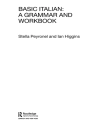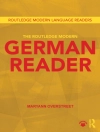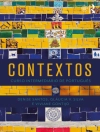Engaging, informative, and nontechnical,
Introduction to Educational Research: A Critical Thinking Approach, Second Edition was written and organized specifically for students intending to conduct future educational research. It enables students to think clearly and critically about the process of research and illustrates how easily research can be misinterpreted. The author empowers educators and makes research truly accessible by equipping readers with the reasoning and thinking skills needed to understand and critically evaluate empirical studies across all areas of education. Students are guided through the stages of the research process: thinking about research, formulating hypotheses, selecting appropriate research designs, collecting and analyzing statistical and qualitative data, and completing research analyses and critiques. As a result, students will better understand research as an integrated process, as well as show how and why researchers think like they do.
Tabela de Conteúdo
Preface
Part I: Foundations
Chapter 1: Educators as Critical Thinkers
Chapter 2: Thinking About Research
Chapter 3: Diversity of Educational Research
Part II: Research as Process
Chapter 4: The Research Problem
Chapter 5: Research Language
Chapter 6: Theory and Practice
Part III: Data Collection
Chapter 7: Research Bias and Control
Chapter 8: Sampling in Research
Chapter 9: Measurement in Research
Part IV: Design and Analysis
Chapter 10: Common Experimental Research Designs
Chapter 11: Common Non-Intervention Research Designs
Chapter 12: Qualitative Data, Analysis, and Design
Chapter 13: Statistical Data Analysis
Part V: Consumer to Producer
Chapter 14: Research Analysis and Critique
Chapter 15: Writing Research Proposals
Glossary
References
Index
Sobre o autor
W. Newton Suter received his Ph.D. in Educational Psychology in 1983 from Stanford University. He is Professor in Educational Foundations in the Department of Educational Leadership at the University of Arkansas at Little Rock, where he frequently teaches courses in research, statistics, measurement, and educational psychology. Dr. Suter’s research interests include healthcare education, health literacy, and home health education, and he has written several textbooks and various journal articles.












